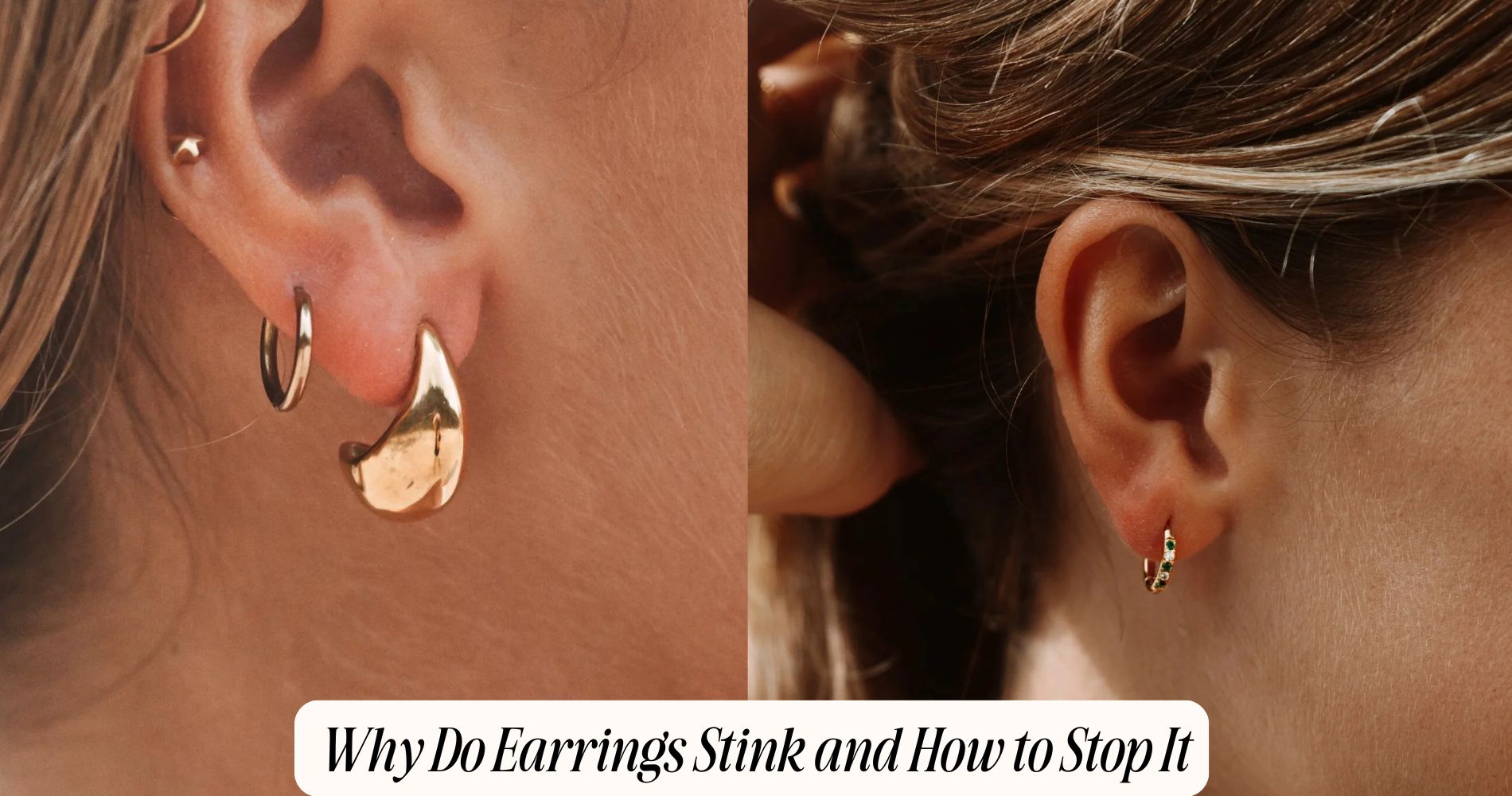
Why Do Earrings Stink and How to Stop It
Why do earrings stink? The unpleasant odor usually comes from a buildup of dead skin cells, sebum, and bacteria thriving in a nutrient-rich environment. Sweat and natural skin oils worsen this by encouraging bacterial growth that produces odor-causing byproducts. The good news is that regular cleaning, choosing hypoallergenic metals, and proper storage can greatly minimize these smells. Opting for higher karat gold or titanium can also reduce reactions that intensify odors. Learn the best cleaning and maintenance tips to keep your earrings fresh—and explore our best hoop earrings for stylish, odor-resistant options.
Understanding the Source of the Odor
When earrings start to emit an unpleasant odor, it's often due to the accumulation of dead skin cells, sebum, and bacteria around the pierced area.
This odor can intensify with earwax buildup, which provides a nutrient-rich environment for bacteria growth. As bacteria proliferate, they produce waste products that contribute to the smell.
Earring posts and backings can trap these substances, exacerbating the problem. Regular cleaning of both the earrings and the surrounding skin can reduce the risk of bacterial colonization.
By maintaining hygiene, you can prevent the microenvironment that encourages bacterial activity and the resulting odor.
If you notice persistent odor despite cleaning efforts, consider consulting a healthcare professional to rule out any underlying infections or complications.
The Role of Skin Oils and Sweat
Although often overlooked, skin oils and sweat play a significant role in the odor emanating from earrings. Your sebaceous glands produce oils that mix with sweat, creating an ideal environment for skin bacteria to thrive.
These bacteria break down the oils and sweat, releasing byproducts that contribute to the unpleasant smell. The design and fit of earrings can trap these substances, leading to increased odor retention over time.
Regular cleaning is essential to prevent this buildup and minimize bacterial activity. Additionally, understanding your body's natural oil and sweat production can help you choose jewelry that allows for better airflow, reducing the conditions that skin bacteria prefer.
Material Matters: How Different Metals Affect Smell
As you consider the materials of your earrings, it's important to understand how different metals can influence the smell they emit.
Metals like gold and silver react differently with your skin's oils and sweat. Gold, particularly higher karat options, is less reactive and tends to produce a milder odor compared to silver. Silver can tarnish, reacting with sulfur compounds, which may intensify any odor.
Choosing hypoallergenic options can also mitigate unpleasant smells. Metals such as titanium or surgical stainless steel are less likely to react with skin, reducing odor formation.
These materials are especially beneficial for individuals with sensitive skin, as they minimize irritation and bacterial growth. Therefore, selecting the right metal is vital for maintaining fresh-smelling earrings.
Cleaning and Maintenance Tips for Fresh Earrings
Proper cleaning and maintenance play an essential role in keeping your earrings fresh and odor-free.
Earring sanitization methods like using a mild soap solution can effectively remove bacteria and debris. Immerse your earrings in the solution for a few minutes, then gently scrub with a soft brush. Rinse thoroughly with water and pat dry.
For daily care, wipe your earrings with a microfiber cloth before wearing them. This reduces oil and dirt buildup, common contributors to odor.
Additionally, avoid wearing earrings while sleeping or exercising, as sweat can exacerbate bacterial growth. Alcohol wipes can also be used for quick sanitization.
Ensuring regular maintenance not only prolongs the earrings’ life but also keeps them hygienic and pleasant to wear.
Proper Storage Solutions to Minimize Odor
In addition to regular cleaning, storing your earrings correctly helps prevent unpleasant odors. Use earring boxes designed for moisture control. These boxes often contain materials such as silica gel, which absorb excess moisture and reduce the environment conducive to bacterial growth, a primary cause of odor.
Make sure that your earring boxes have compartments to separate earrings, minimizing contact and reducing the risk of transferring oils and dirt between pieces.
Place your earring boxes in a dry, cool area, avoiding humid environments like bathrooms. This strategic placement further enhances moisture control.
Research shows that proper storage conditions greatly decrease the likelihood of odor formation, allowing you to maintain fresh-smelling earrings. By implementing these storage solutions, you effectively reduce the chance of unpleasant odors developing.
When to Consider Replacing Your Earrings
Even with meticulous care, there comes a time when replacing your earrings is necessary to maintain ideal hygiene and aesthetics.
Over time, earrings can accumulate bacteria, oils, and dead skin cells, reducing earring longevity and potentially causing skin irritation or infections. Regularly inspect your earrings for signs of tarnishing, discoloration, or structural damage.
These indicators suggest compromised materials that may no longer be safe for prolonged skin contact. Health considerations should prioritize avoiding allergic reactions, especially if you notice persistent redness or itching.
Opt for hypoallergenic materials, like surgical steel or titanium, if sensitivity arises. Additionally, if odor persists despite thorough cleaning, it could signal that the earring's material has degraded.
Replacing them guarantees both your comfort and health remain uncompromised.
Frequently Asked Questions
Can Wearing Earrings Cause Infections That Lead to Odor?
Yes, wearing earrings can cause infections leading to odor if you neglect earring hygiene. Clean your earrings and earlobes regularly to prevent bacterial buildup. This practice greatly contributes to infection prevention and maintaining a pleasant scent.
Do Certain Foods Contribute to Earring Odor?
Yes, your diet can affect earring odor. Certain foods, especially those high in sulfur, might contribute to it. To aid odor prevention, consider dietary impacts by limiting sulfur-rich foods like garlic and onions in your meals.
How Does Weather Affect Earring Smell?
Humidity effects and temperature fluctuations can increase earring smell by promoting bacterial growth. You should regularly clean your earrings and earlobes, especially in warm, humid conditions, to minimize odor and maintain hygiene effectively.
Are There Health Risks Associated With Smelly Earrings?
Yes, smelly earrings can lead to infections if hygiene practices are poor. Earring materials might irritate the skin, harbor bacteria. Clean them regularly, choose hypoallergenic materials to reduce risks. Prioritize proper hygiene for ear health.
Can Allergies Cause Earring Odor Issues?
Yes, allergies can cause earring odor issues. When you experience ear material sensitivity, it often leads to skin irritation. This irritation can trap bacteria and dead skin cells, resulting in an unpleasant smell around the earrings.
Conclusion
You've learned that the odor from earrings often results from a buildup of skin oils, sweat, and bacteria. Different metals can influence this smell, with some being more prone to odor than others. To keep your earrings smelling fresh, regularly clean them using appropriate methods and store them in a dry, clean environment. If persistent odors remain despite your efforts, it might be time to replace them with new, high-quality options.










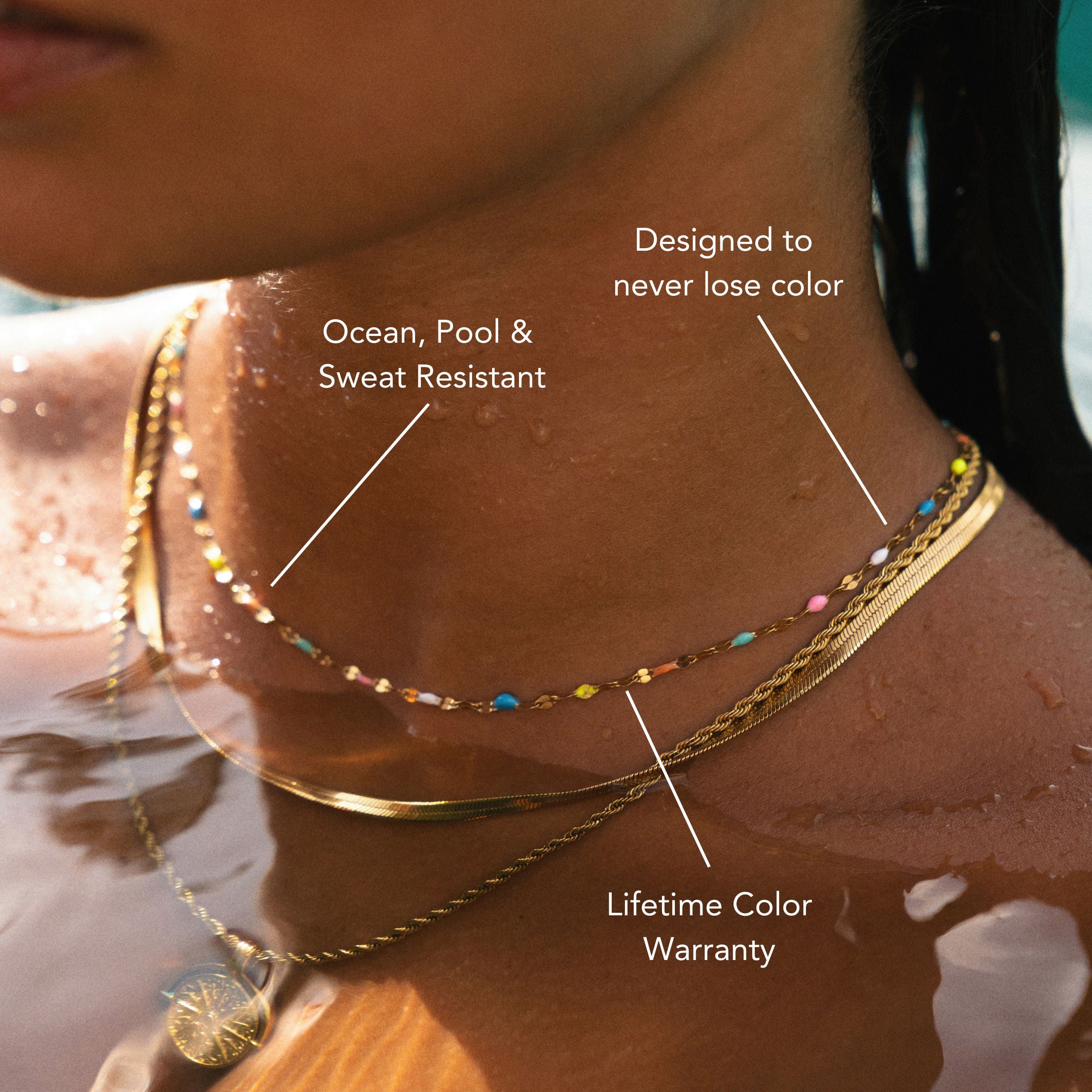
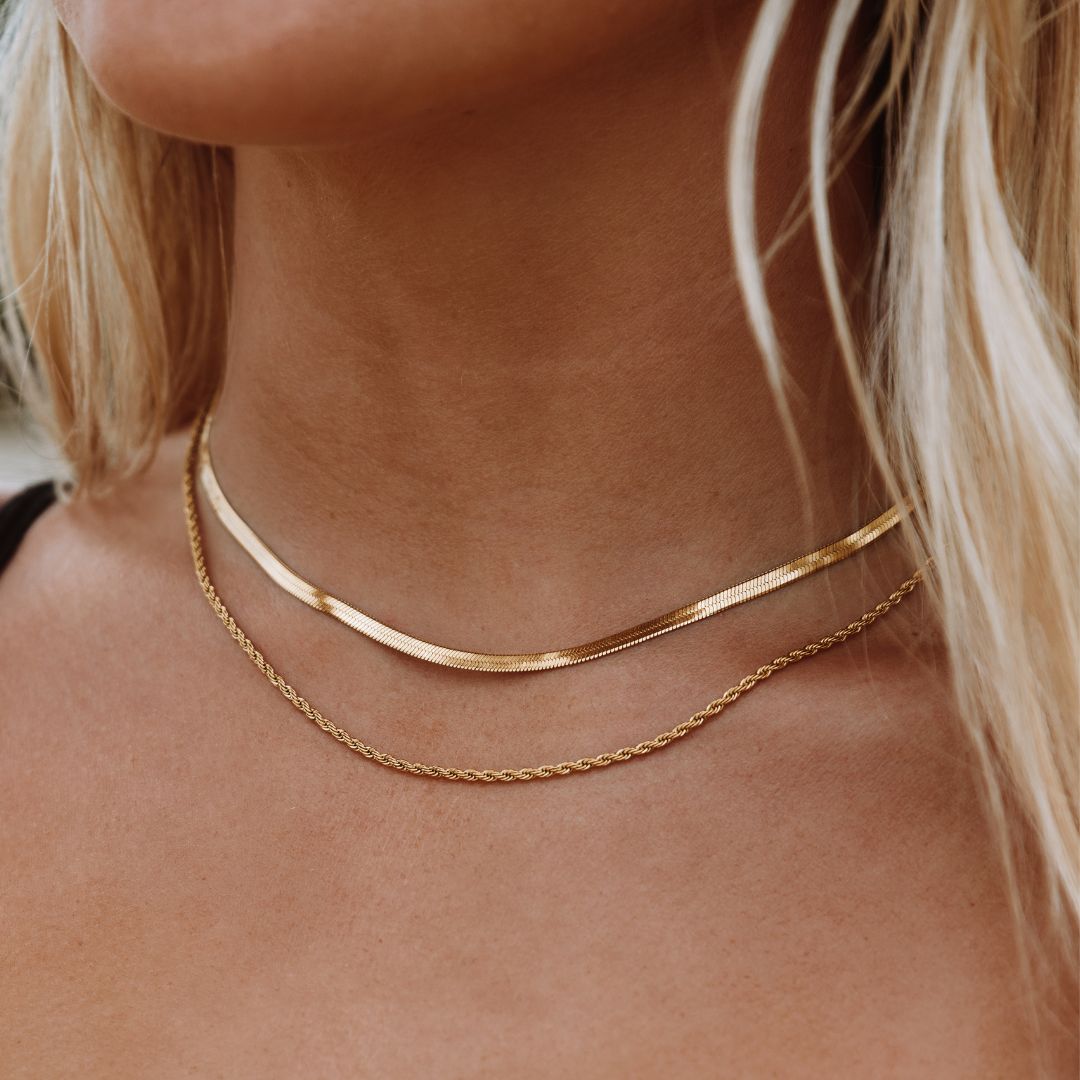



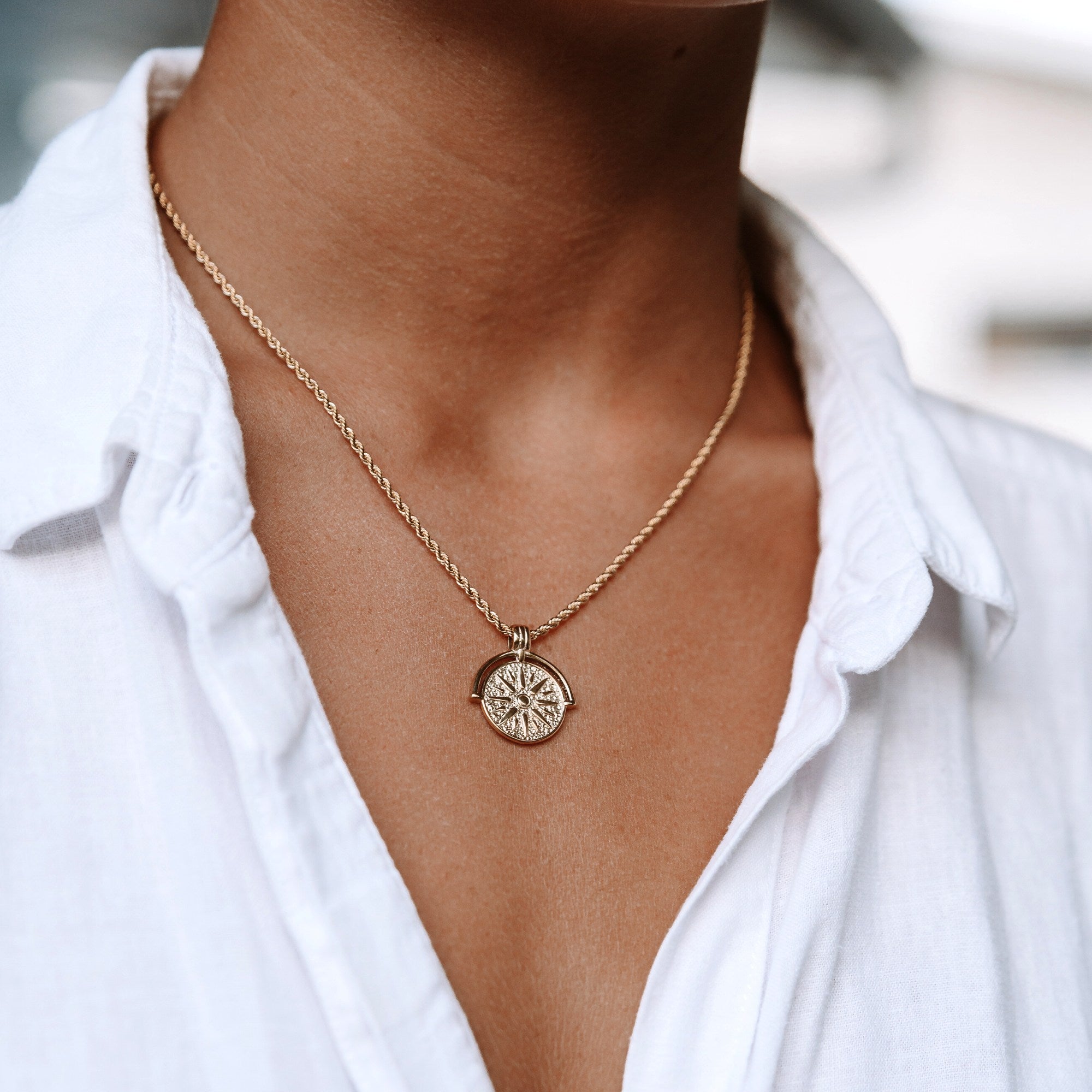

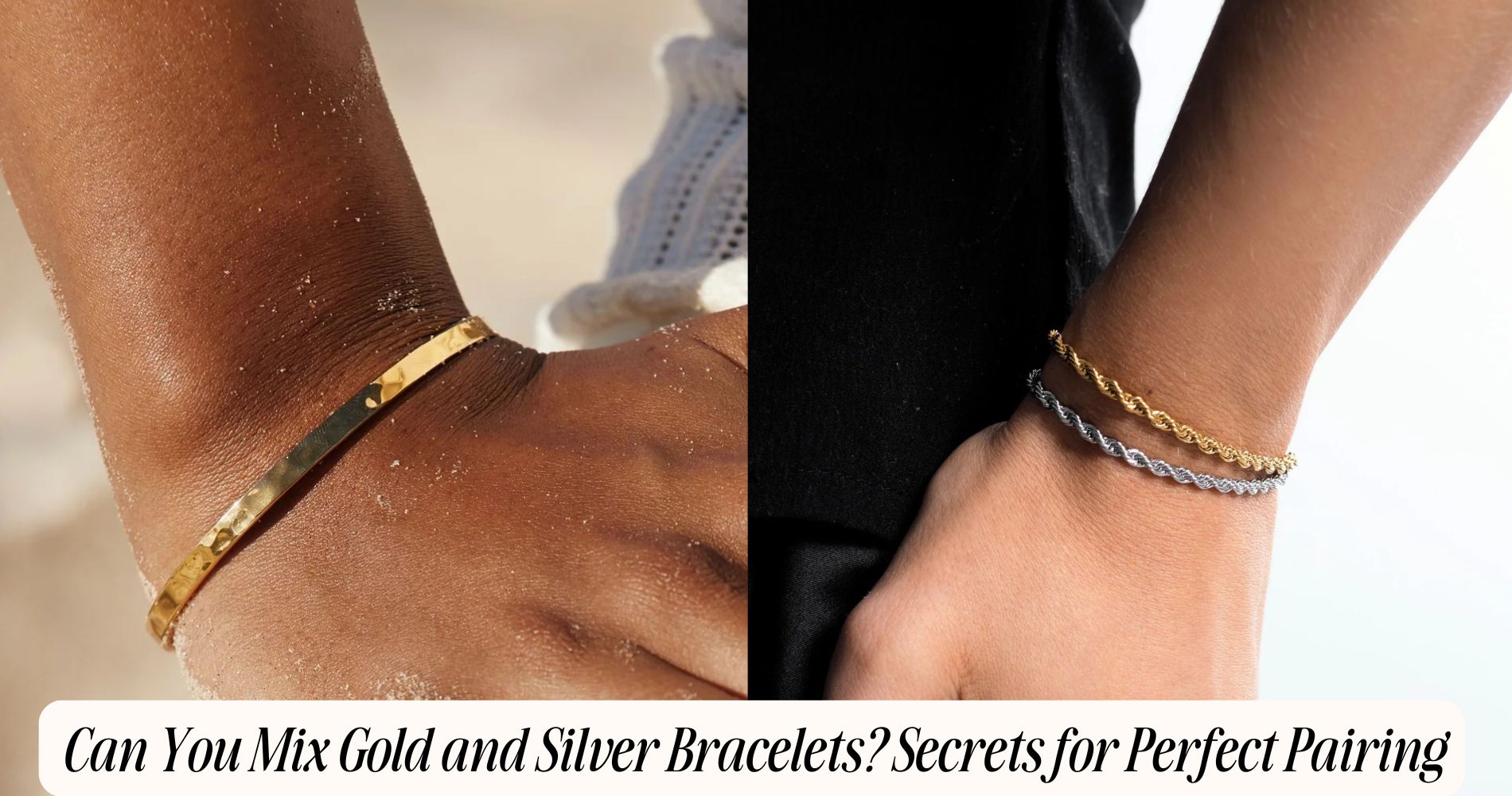
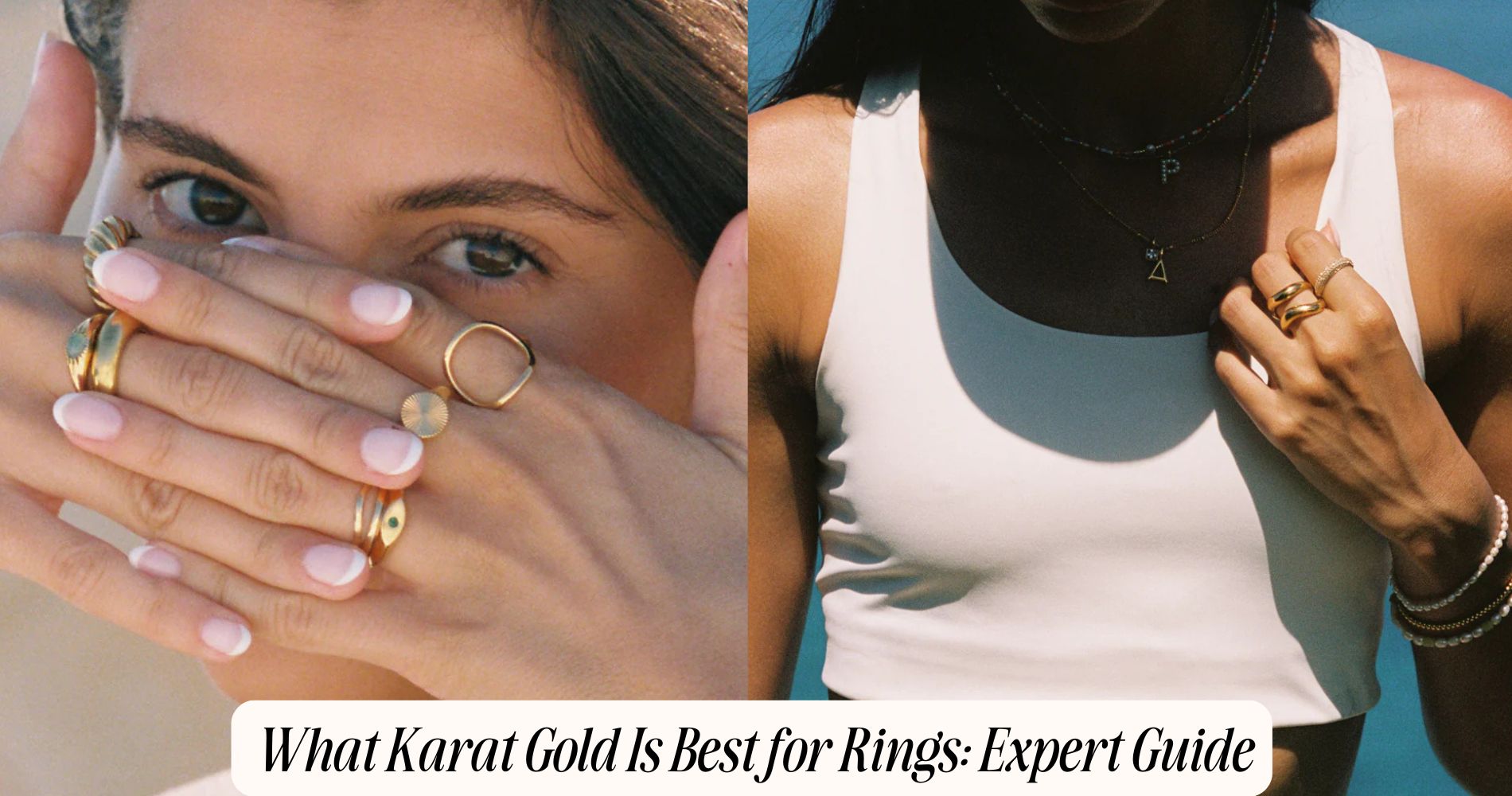




コメントを書く
このサイトはhCaptchaによって保護されており、hCaptchaプライバシーポリシーおよび利用規約が適用されます。